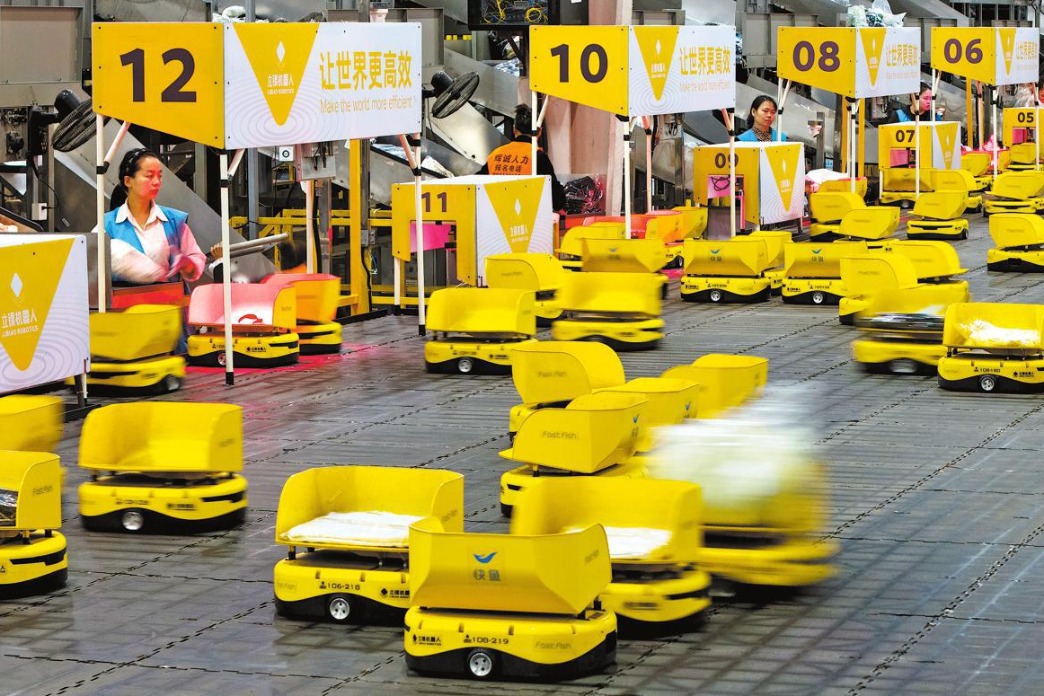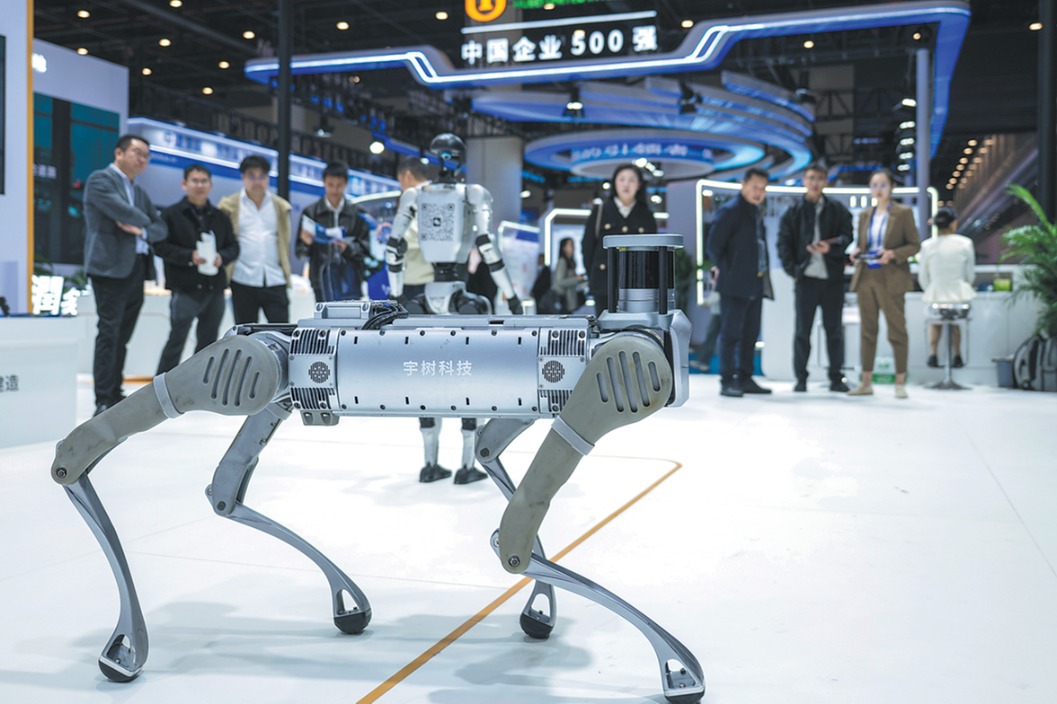Giving a human touch to tech innovation


Digital systems are becoming increasingly embedded in daily life, particularly in China, where they are reshaping how people live, feel and relate to one another. This digital transformation is not only a technological revolution but also a profound reconfiguration of social relations and cultural values. The World Internet Conference Wuzhen Summit illustrated this transformation, showcasing how technologies — such as robotics and mixed reality applied to digital healthcare, education and public services — are integrated into everyday life. These developments highlight that the impact of technology reaches far beyond technical innovation, touching the emotional and ethical foundations of human existence.
Philosophy has long shown that technologies are never neutral. Every invention reshapes the horizon of human experience, redefining values, relationships, and ways of perceiving the world. This insight has become increasingly relevant as digital technologies expand across all sectors of society. The central question is no longer how to improve devices through technical efficiency or economic growth, but how these systems transform intimacy, care and the social bonds that sustain communities. Nowhere is this reflection more visible than in China, where rapid innovation is accompanied by growing academic and public discussion on its human implications.
Technologies designed for elderly care, companionship and emotional support already show how digital systems are altering daily life. Such technologies do far more than assist with routine tasks. They influence how people experience warmth, attention and connection in a world where presence can be virtual and relationships are increasingly mediated by algorithms. The growing presence of these systems invites reflection on how societies redefine care, affection and well-being under digital conditions. Intimacy, once rooted in physical proximity, is now co-created through the interaction between humans and machines. These technologies, through their interactive design, bring warmth into digital spaces, ensuring that human connection is not lost as technology becomes more present in everyday life.
Scholars and policymakers are exploring different ways to understand and guide this transformation. One approach draws on traditional ideas and values — particularly those grounded in Confucian and Daoist thought — which emphasize harmony, balance and mutual responsibility.
From this perspective, technological development should be guided by cultural values that promote social stability and collective wellbeing. Ethical frameworks inspired by these traditions can help ensure that innovation strengthens resilience rather than disrupting it. For instance, researchers are examining how artificial intelligence systems might be designed to reflect moral principles consistent with established cultural norms.
Another approach builds on these traditions but moves in a more open and exploratory direction. Rather than directing technological development toward predetermined goals, this perspective focuses on what unfolds once technologies become part of daily life. It emphasizes responsiveness and attentiveness to the changes that new systems generate — how they reshape habits, emotions and social structures in ways that cannot be fully controlled. Technologies are not simply means to implement existing ideas of a good society; they are active forces that reveal new possibilities and tensions, transforming what people value and how they understand themselves. Researchers in this line of inquiry study, for example, how the introduction of artificial intelligence alters the meaning of work, care or intimacy the moment machines begin to perform tasks once considered uniquely human.
This openness to the unforeseen effects of technology extends well beyond the laboratory. Throughout China, interdisciplinary collaborations are flourishing, bringing together philosophers, engineers, designers and science-fiction scholars to explore how society may evolve in response to technological change. Researchers across the country are forming dynamic networks that unite these diverse fields.
Their efforts emphasize the importance of placing the human being at the center of technological innovation, ensuring that progress is not only efficient but also aligned with cultural values and human needs. By integrating warmth and empathy into technological design, they ensure that innovation serves the human spirit, not just functionality.
China seems to promote not only technological development but also a deeper reflection on the major societal changes these innovations bring. By placing the human being at the center of technological progress, China ensures that development moves forward with a human touch and warmth. This approach acknowledges that technology, when thoughtfully applied, can enhance human connection rather than diminishing it, ensuring a future where progress and human values grow together.
The author is associate professor in the Department of Philosophy at Shanghai Jiao Tong University, president of the Society for Phenomenology and Media (USA), associate editor of Nature: Humanities and Social Sciences Communications, and executive editor of New Techno-Humanities (Elsevier).
The views don't necessarily reflect those of China Daily.
If you have a specific expertise, or would like to share your thought about our stories, then send us your writings at opinion@chinadaily.com.cn, and comment@chinadaily.com.cn.

































